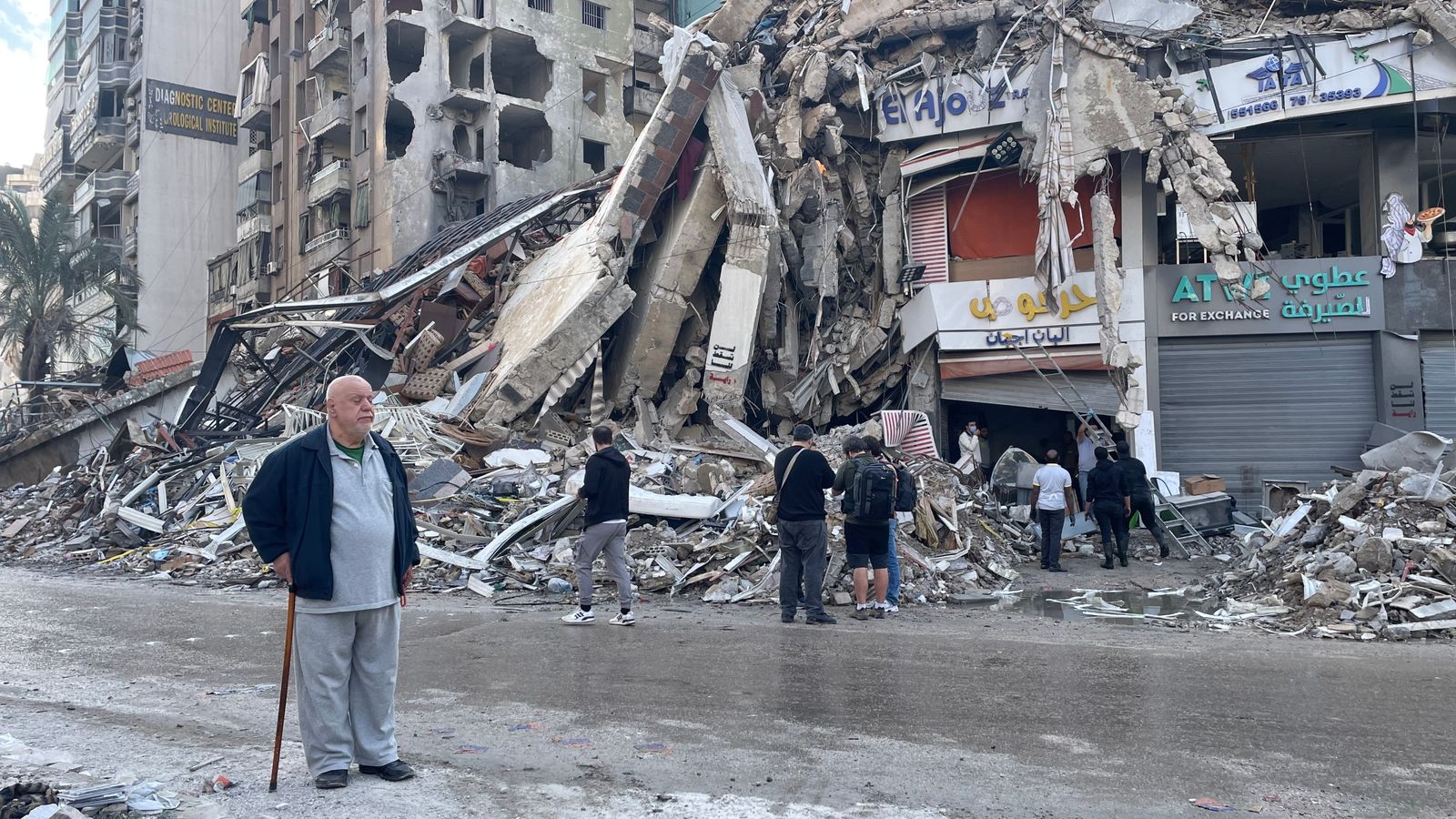Mother and daughter, their car loaded with luggage, are driving together back to their house in this bombed-out suburb of Beirut. I ask them how it feels coming home.
“Nothing feels like home,” Samara Diab, the daughter, says.
Dahieh, in the south of Beirut, is Hezbollah territory and much of it has been levelled. Its leader Hassan Nasrallah was assassinated by an airstrike two months ago.
But the children here shout his name out of cars as they pass.
His picture is draped over the tower blocks that have collapsed into rubble. And the yellow flags of Hezbollah still fly.
The neighbourhood was a ghost town during the last two months of heavy bombardment.
Read more:
Analysis: Dark clouds hang over Middle East
Explained: Israel-Hezbollah ceasefire
The destruction is everywhere but people have returned and are already clearing up. Workers in a restaurant hit by an airstrike 10 days ago sweep the dust off the counter and pour out the food that had sat rotting.
Across the street, Ali Shawraba is inspecting the damage to his clothes shop. “We are Lebanese, we are strong. We started today,” he says.
“This business will come back. I am optimistic for this country – we will rebuild it, everything will be back.”
This is more complicated than a simple tale of respite from war. It is also a photo opportunity.
👉 Listen to Sky News Daily on your podcast app 👈
We are here with the permission of Hezbollah, who monitor us closely. And there are others too: officials from Iran are on site to hand out small gifts to passersby.
It is perhaps a calculated show of defiance. The same day, Hezbollah’s new leader Naim Qassem declared that “we are meeting today in an atmosphere of divine victory”.
One man on the street asks us to film him and says: “The things that happened here in Lebanon, especially in the southern suburbs, is a tragedy.
“Mass destruction. Despite that, we will never lose the spirit, and we always choose to resist and fight back.”
That belligerence is tempered by caution. People here know that the ceasefire is fragile, that any return is conditional.
Samara Diab, the woman we meet travelling with her mother, is one of those.
“It’s hard to trust the enemy,” she says. “And experience has proven that you cannot really trust what they say.
“And we just have to stay aware.”


